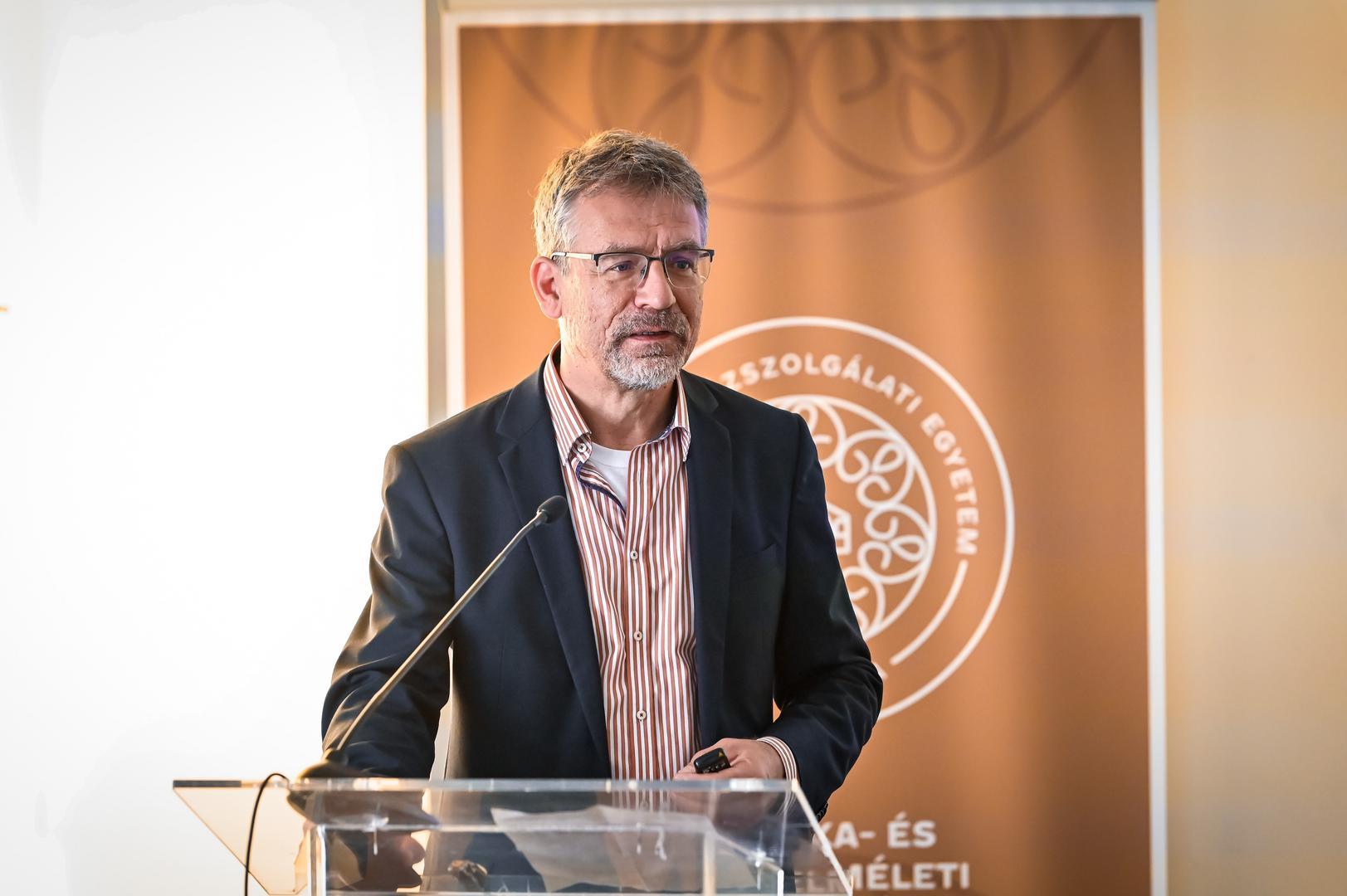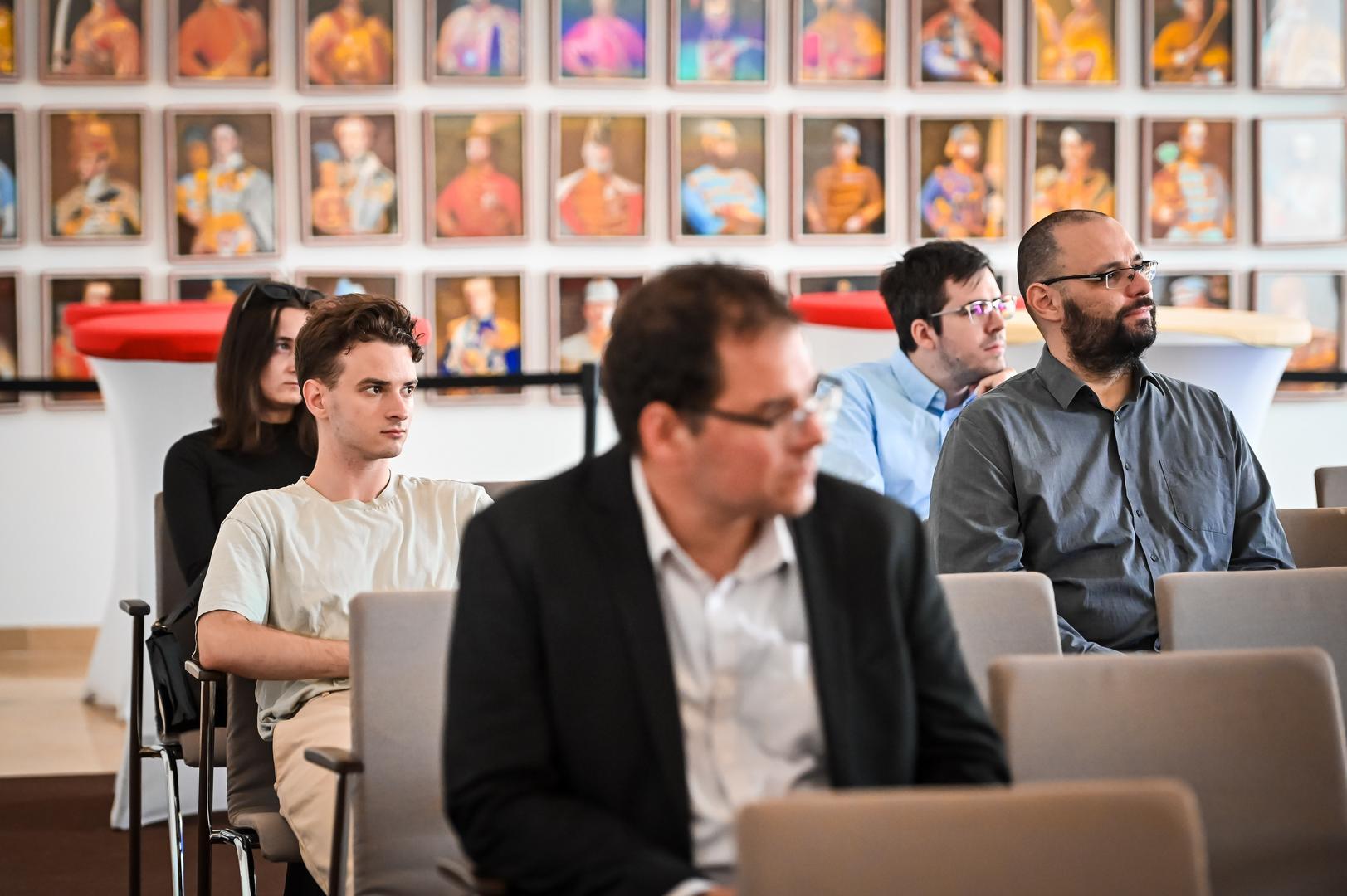 A conference was held at the Zrínyi Room of the Ludovika Main Building discussing the manifestations of Anglophilia and its impact on Hungarian political thinking from the early-modern period until the end of the Second World War, on 22 September.
A conference was held at the Zrínyi Room of the Ludovika Main Building discussing the manifestations of Anglophilia and its impact on Hungarian political thinking from the early-modern period until the end of the Second World War, on 22 September.
In his keynote lecture, the organizer of the conference, Ferenc Hörcher, director of RIPG outlined his concept of a great narrative of three generations of Hungarian Anglophiles in the Modern Era, centred around three outstanding political thinkers of aristocratic background: count Ferenc Széchényi, his son count István Széchenyi, and count István Bethlen. Hörcher argued in favour of a continuity of Anglophile political orientation since the late 18th century, manifested in the search for an intermediary way between the influence of Russia and Germany, in moderate conservatism, the limitation of power and the concept of the rule of law.
The following lectures of the conference discussed a wide range of topics related to British-Hungarian cultural, intellectual, and political connections. The first panel focused on the early-modern period. Gábor Petneházi (Ludovika UPS RIPG) spoke of the diplomatic efforts of leading Transylvanian politicians to seek help from Queen Elizabeth I to support their strives to stay out of the Fifteen-Year War against the Ottoman Empire. Viktória Ilona Kiss (University of Debrecen) analysed the contexts of the first Hungarian translation of King James I’s Basilikon Doron. Ádám Smrcz (Ludovika UPS RIPG) discussed a 19th century phase in the Hungarian reception of Adam Smith.
The following panel dealt with the period of the Hungarian Reform Era. The first two lectures were focusing on the correspondence of István Széchenyi. Szilvia Czinege (HUN-REN RCH Institute of History) investigated the topic of horse-breading and horse-racing in this corpus, while Kálmán Tóth (Ludovika UPS RIPG) examined the Anglophile contexts in the count’s correspondence with Lutheran superintendent and member of the Hungarian Academy of Sciences János Kis. Csaba Lévai (University of Debrecen) contextualized the image of Britain in the travelogue of Sándor Bölöni Farkas, and Janka Kovács (HUN-REN RCH Institute of History) discussed the role of British models in the discourses regarding the institutionalization of psychiatry in 19th-century Hungary.
The next panel of the conference investigated the age of the Dual Monarchy. Evelin Gliga (University of Debrecen) gave an account of her research on the emergence of English-style fox hunting in the Austro-Hungarian Monarchy, highlighting the role of Empress Elizabeth in the social and political relations of the Monarchy with Great Britain. Bertalan Bordás (University of Pécs) discussed the Anglophilia of prime minister Gyula Andrássy Sr. and the influence of his British connections on Austro-Hungarian foreign policy. Miklós Lojkó (Eötvös Loránd University of Budapest) presented an analysis of late-19th and early-20th-century legal and political thinker Győző Concha’s interpretation of the British constitutional tradition, while Gergely Egedy (Ludovika UPS Faculty of Public Governance and International Studies) focused on the oeuvre of the pioneer of modern conservatism in Hungary, János Asbóth, pointing out the influence of Benjamin Disraeli’s one-nation-conservatism on his political thought.

The three lectures held in the final panel of the conference dealt with the first half of the 20th century. Eszter Balázs (UPS Ludovika ICES) investigated the process of how the Anglophilia of the pre-World War One era turned into its opposite with the proclamation of war in 1914, but also emphasizing that in Hungary, wartime Anglophobia never reached the level of the hatred occurring in Germany. Róbert Barta (University of Debrecen) told the story of the English Boarding School of Sárospatak, established by Minister of Culture Kuno Klebelsberg in order to train a new erudite Anglophile elite recruited from the middle and upper strata of Hungarian society. The final lecture of the conference was held by Ákos Bartha (HUN-REN RCH Institute of History) on the Anglophilia of martyr politician Endre Bajcsy-Zsilinszky.
Presentations and subsequent discussions of this interdisciplinary conference gave an overview of the various aspects and dynamics of British-Hungarian relations, investigating a period of several centuries, contributing towards a deeper and more complex understanding of the role of a manifold group of phenomena described as Hungarian Anglophilia in preparing the ground for a regime of parliamentary democracy after 1990.
Kálmán Tóth
research fellow
Ludovika UPS EJRC Research Institute for Politics and Government
Photo: Dénes Szilágyi